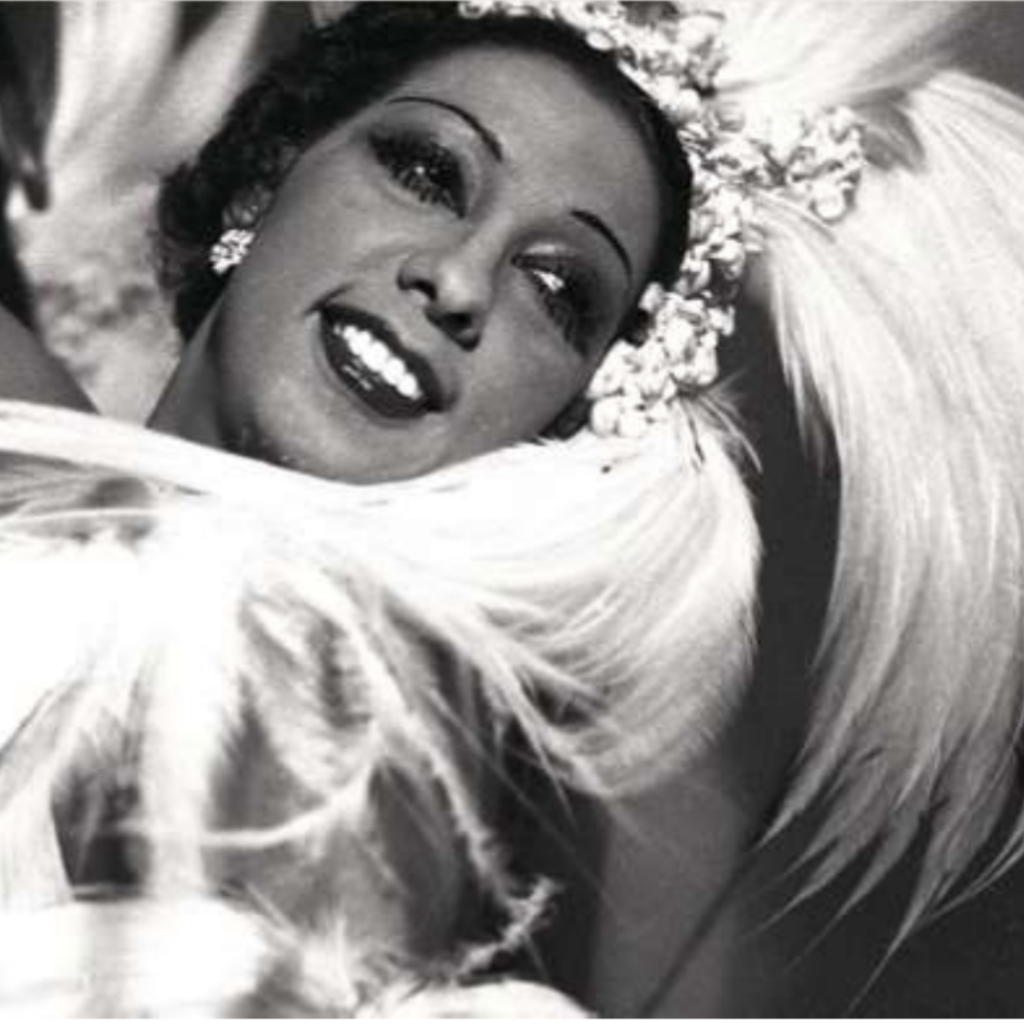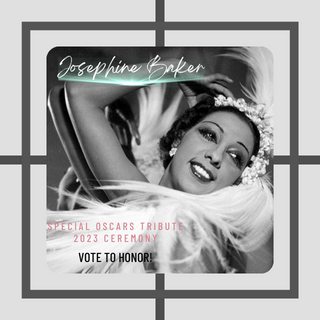Josephine Baker BIOGRAPHY and Quotes
In the 1920s, Josephine Baker burst onto a stage in Paris with a comical yet seductive allure that captivated the continent of EuropHer exotic beauty earned her the nicknames “Black Pearl,” “Black Venus,” and “Creole Goddess.” Her no-holds-barred dancing style and barely-there clothing made her known. Numerous presents, such as diamonds and vehicles, were given to her by admirers, and she also got about 1,500 marriage offers. Up until her death in Paris, France, in 1975 at the age of 68, she gave energizing performances and maintained her celebrity position. Sadly, until 1973 in the United States, racism delayed the recognition of her talents and abilities.
BACKGROUND INFORMATION
Name: Freda Josephine McDonald
Born: June 3, 1906
Place of Birth: East St. Louis, Illinois, USA
Died: April 12, 1975 (aged 68) in Paris, France
Genre(s): Cabaret, music hall, French pop, French jazz
Occupation(s): Dancer, singer, actress
Instrument(s): Vocals
Label(s): Columbia, Mercury, RCA Victor
Famous for: The “Rainbow Tribe”, Her banana dance, and civil rights activism
Favorite food: Spaghetti
Pets: Dogs, Cats, Fish, Parrots, A Leopard, Chimpanzee, Parakeet, Snake, Pig and Goat
Beauty advice: Dance a lot and sweat a lot, because that makes you sleep.
Hobby: Swimming
FILMS
– La Sirène des Tropiques (1927) aka Siren of the Tropics
In this silent black-and-white movie, a stunning girl from the tropics travels to Paris and develops into a dazzling dancer. In order to reach the audience in the back of a theater, Josephine was accustomed to overdoing her gestures and voice; as a result, she overacted significantly in her first movie and felt embarrassed by it. Sadly throughout the years, most films have been lost.
-Zouzou (1934)
Young Creole woman played by Josephine has a father who works for a circus. She and Jean, the white brother she adopted, were depicted as “twins” in the cartoon as children. Jean becomes Zouzou’s love interest later, and he serves as her guardian throughout the entire movie. Zouzou starts performing to generate money for Jean after he is wrongfully imprisoned for a crime.The movie turns into a musical at this point, showcasing Josephine’s charm and abilities. On the first night of her performance, Zouzou goes to the police to show that Jean is innocent; she returns just in time for the finale and goes on to become a star. She performs a standout sequence in which she sings Haiti while swinging and wearing feathers. Later, Jean develops feelings for a white woman and leaves Zouzou by herself. In a gold-plated cage, she is shown singing while nearly completely naked. Now that she has nothing else, she must perform. The success of Zouzou in France demonstrated Josephine’s charisma and charm.
-Princess Tam Tam (1935)
Some people believe that this Tunisian-shot movie is Josephine’s best work. She meets French author Max de Mirecourt while on vacation in Africa, where she is once more a “primitive” girl. He left for Africa because he was sick of his socialite wife’s infidelity. Max is infatuated with Alwina (Josephine) and attempts to reintroduce her to France under the guise of “Princess Tam Tam.” She is introduced to French culture, where everyone is charmed by her naïve responses and feelings.Later, she performs Under the African Sky while singing and dancing in a nightclub in Paris to display her talent.
-The French Way (1945)
Josephine portrays the cabaret performer Zazu, who assists a young couple maintain their relationship in spite of their combative parents. The son’s father had asked her character to end the relationship, but she decided against it and chose to serve as a matchmaker. Although this movie did not earn as much praise as Tam Tam or Zouzou, it nonetheless gives viewers a peek of Josephine at her best.
****************************************************************
AWARDS
For her valiant military service in France during World War II, Josephine was honored with the Croix de Guerre, Légion d’Honneur, and Rosette de la Résistance.
ACHIEVEMENTS
Transmission of culture:
At a period when the Europeans believed that America lacked culture, Josephine played a crucial role in introducing the Jazz Age to Europe.
Humanitarian:
She frequently participated in charitable endeavors in Paris, making appearances at events and generally lending a hand. Josephine “kissed newborns at foundling homes, offered dolls to the young and soup to the elderly,” according to Phyllis Rose in Jazz Cleopatra.
War efforts:
Josephine served as a Red Cross nurse and a clandestine courier for the French Resistance during World War II. As a sub lieutenant in the Free French forces’ women’s auxiliary, she also provided entertainment for the troops.
Civil rights activist:
Josephine believed it was her obligation to support the civil rights movement in America despite her affinity to Paris. She refused to play in theaters that practiced discrimination, saying that black people should not be permitted to occupy seats next to those reserved for white people. At the 1963 March on Washington, Josephine also gave a speech. She said to the crowd that they resembled “salt and pepper. Just what it should be.”
Children of the world:
Since Josephine was childless, she created her own adopted family, which she dubbed the “Rainbow Tribe.” She sought to demonstrate the viability of raising children of all races and ethnicities in harmony. She ended up adopting 12 kids from different countries, but she also lost both her home and her husband in the process.
Career Highlights:
- Joined the 1922 tour of Shuffle Along, the first black-only Broadway musical.
- Arrived in Paris in 1925 to start dancing in La Revue Nègre.
- Her music was first recorded in 1926.
- In 1936, She returned to America with the Ziegfeld Follies.
- Starred in Joséphine at age 69 and died after the 14th performance
****************************************************************
QUOTES:
“Art is an elastic sort of love.”
“Salt and pepper. Just what it should be.”
– Josephine, looking over the crowd at the 1963 March
“I love performing. I shall perform until the day I die.”
“The secret to the fountain of youth is to think youthful thoughts.”
“The white imagination is sure something when it comes to blacks.”
“I believe in prayer. It’s the best way we have to draw strength from heaven.”
“I like Frenchmen very much, because even when they insult you they do it so nicely.”
“You are on the eve of a complete victory. You can’t go wrong. The world is behind you.”
– Josephine, speaking at the ’63 March on Washington
“Since I personified the savage on the stage, I tried to be as civilized as possible in daily life.”
“Beautiful? It’s all a question of luck. I was born with good legs. As for the rest… beautiful, no. Amusing, yes.”
“The old Catholic parties hounded me with a Christian hatred from station to station, city to city, one stage to another.”
“I did take the blows [of life], but I took them with my chin up, in dignity, because I so profoundly love and respect humanity.”
“We’ve got to show that blacks and whites are treated equally in the army. Otherwise, what’s the point of waging war on Hitler?”
“We must change the system of education and instruction. Unfortunately, history has shown us that brotherhood must be learned, when it should be natural.”
“I’m not intimidated by anyone. Everyone is made with two arms, two legs, a stomach and a head. Just think about that.”
“It [the Eiffel Tower] looked very different from the Statue of Liberty, but what did that matter? What was the good of having the statue without the liberty?”
“I think they must mix blood, otherwise the human race is bound to degenerate. Mixing blood is marvelous. It makes strong and intelligent men. It takes away tired spirits.”
“… I improvised, crazed by the music… Even my teeth and eyes burned with fever. Each time I leaped I seemed to touch the sky and when I regained earth it seemed to be mine alone.”
“Until the March on Washington, I always had this little feeling in my stomach. I was always afraid. I couldn’t meet white American people. I didn’t want to be around them. But now that little gnawing feeling is gone. For the first time in my life I feel free. I know that everything is right now.”
“Surely the day will come when color means nothing more than the skin tone, when religion is seen uniquely as a way to speak one’s soul; when birth places have the weight of a throw of the dice and all men are born free, when understanding breeds love and brotherhood.”
“One day I realized I was living in a country where I was afraid to be black. It was only a country for white people. Not black. So I left. I had been suffocating in the United States… A lot of us left, not because we wanted to leave, but because we couldn’t stand it anymore… I felt liberated in Paris.”
“I am tired of that artificial life. The work of being a star disgusts me now. All the intrigues which surround the star disgust me… I want to work three or four more years and then quit the stage. I’ll go live in Italy or the South of France. I will get married, as simply as possible. I will have children, and many animals. I love them. I want to live in peace surrounded by children and animals. But if one of my children wanted to go onstage in the music hall, I would strangle it with my own two hands.”
http://www.cmgww.com/stars/baker/about/quotes.html
http://www.cmgww.com/stars/baker/index.php

